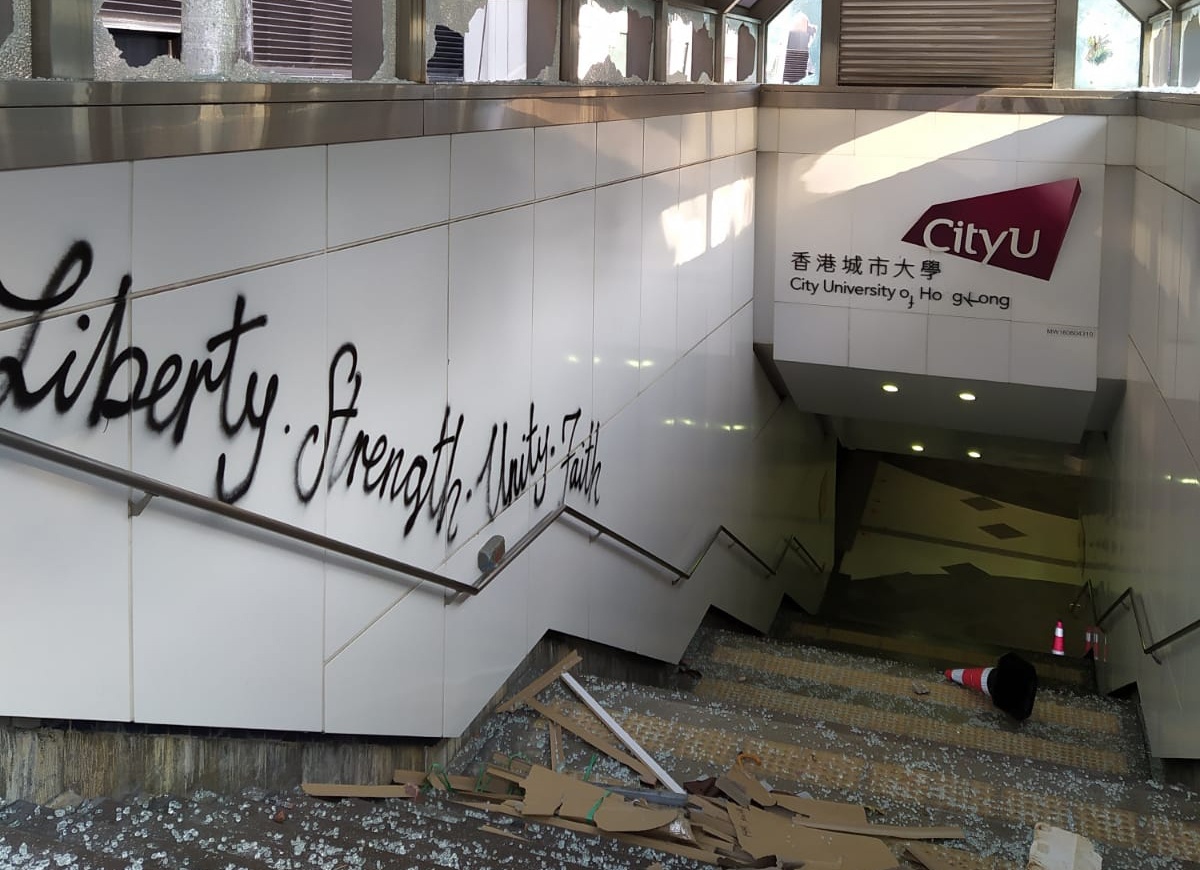Over the last 6 months, Hong Kong protests have paralysed the city and severely impacted the lives of those living there. Sofia Stuart Leeson talked to three European exchange students in Hong Kong to find out how their year abroad has been affected by the civil unrest and clashes with police.
Hong Kong is a popular destination for exchange students around the globe. Recently, though, the political situation has put a lot of pressure on both them and the universities they come from to decide whether or not it is safe to remain there.

Some students have even been offered flight tickets to return immediately, regardless of the duration of their exchange program. Others, however, have not had the same experience.
“I contacted my uni many times since the beginning because I felt unsafe and couldn’t study at all and even couldn’t get back from uni sometimes,” explains Stella. “They told me that if I wanted to go back I had to redo my exchange the year after and I would lose everything because the situation wasn’t dangerous.”

Stella, 22, is an Italian student who lives in Prince Edward, an area where civilians are constantly exposed to violent clashes between protesters and the police force.
“The protests in Prince Edward have been very very violent since the beginning due to what happened in the MTR at the end of August,” Stella says, in reference to Hong Kong’s Prince Edward metro train line (MTR), where videos caught police using brutal force on protesters and civilians alike.
Stella has also experienced the protests head-on. “Once I was coming back from the beach in central and the bus just stopped driving because there were clashes in Causeway Bay and we had to walk all the way over the bridge,” she says. “We wanted to take the MTR, but it was full of police throwing tear gas and we started coughing and our eyes started burning so we had to run.”
Metro stations (MTR) in Hong Kong have been subjected to many clashes between protestors and the police, with Prince Edward station being one of the main ones. Stella is one of the many people who have witnessed what occurs there and says, “the exits of Prince Edward were completely closed off and people pray outside the station.”
Stories like this are frequent among students. Rhys, 21, is a student from the University of Leeds, and he feels that the university has been very supportive towards his studies and safety.
“I have been in contact with the University of Leeds throughout this time, and they have listened and responded to how I feel about the situation,” says Rhys. “My decision to stay in Hong Kong until my pre-planned flight home has been respected, though they have also offered me the option of returning home if I so wanted.”
Rhys recalls how he used to joke about the situation in Hong Kong before arriving. “Before coming to Hong Kong, my friends and I would regularly make jokes about the protests and how my exchange was definitely going to be cut short. It was only a few days ago that I have come to accept that we might be right,” he recalls. “It started with gatherings in the streets, and then the MTR began closing early, disrupting the regular flow of city life.”

“I was in Mongkok a few weeks ago with some friends when protests were happening,” Rhys explains. “It was kind of crazy because people were continually running away and then coming back as the police moved around the streets and used their water cannons.” A few hours later, police vans showed up and protesters dispersed.
Rhys also recalls the way in which protests were organized. “There were layers to the protesters, with the hardcore all in black with masks at the front standing off with police then as you got further away it was more just general locals that were interested,” he explains and adds that, in addition to the protesters, there was “of course the odd foreigner like us.”
Many of them have decided to leave on their own accord. Stella, for example, says she will “leave Hong Kong ASAP now and I will do my exams online from Indonesia”. She plans to return to Europe in January.
“We find ourselves with classes cancelled for the semester and the student residence occupied and barricaded by student protestors in preparation for attacks by police,” says Rhys. “Seeing the university campus vandalized and destroyed, windows shattered and walls covered in paint conjures some kind of indeterminate emotion in me.”
The protesters have also been conscious of the way they have been tackling the situation. Nora, a 22 year old student, notices that they have “tried different tactics and when they realized that what they did wasn’t helping or caused greater harm, they apologized and then they tried to make it better.”
Many students still find the positives in the experience of going abroad. “I don’t regret coming to Hong Kong, but I can’t deny this has been one of the most challenging experiences I had so far,” explains Stella.

Rhys has similar sentiments, saying he feels “incredible sympathy for the protesters here in Hong Kong.” He recalls how “friends that I have made, bonded with, and experienced so much with have disappeared seemingly overnight.”
Civilians in Hong Kong are still out there protesting and risking their lives for less control from Mainland China. Rhys added: “I can now only wish the protesters the best in their continued struggle and that the brutality they are experiencing comes to a peaceful end soon.”

All images courtesy of Rhys, Stella and Nora.

